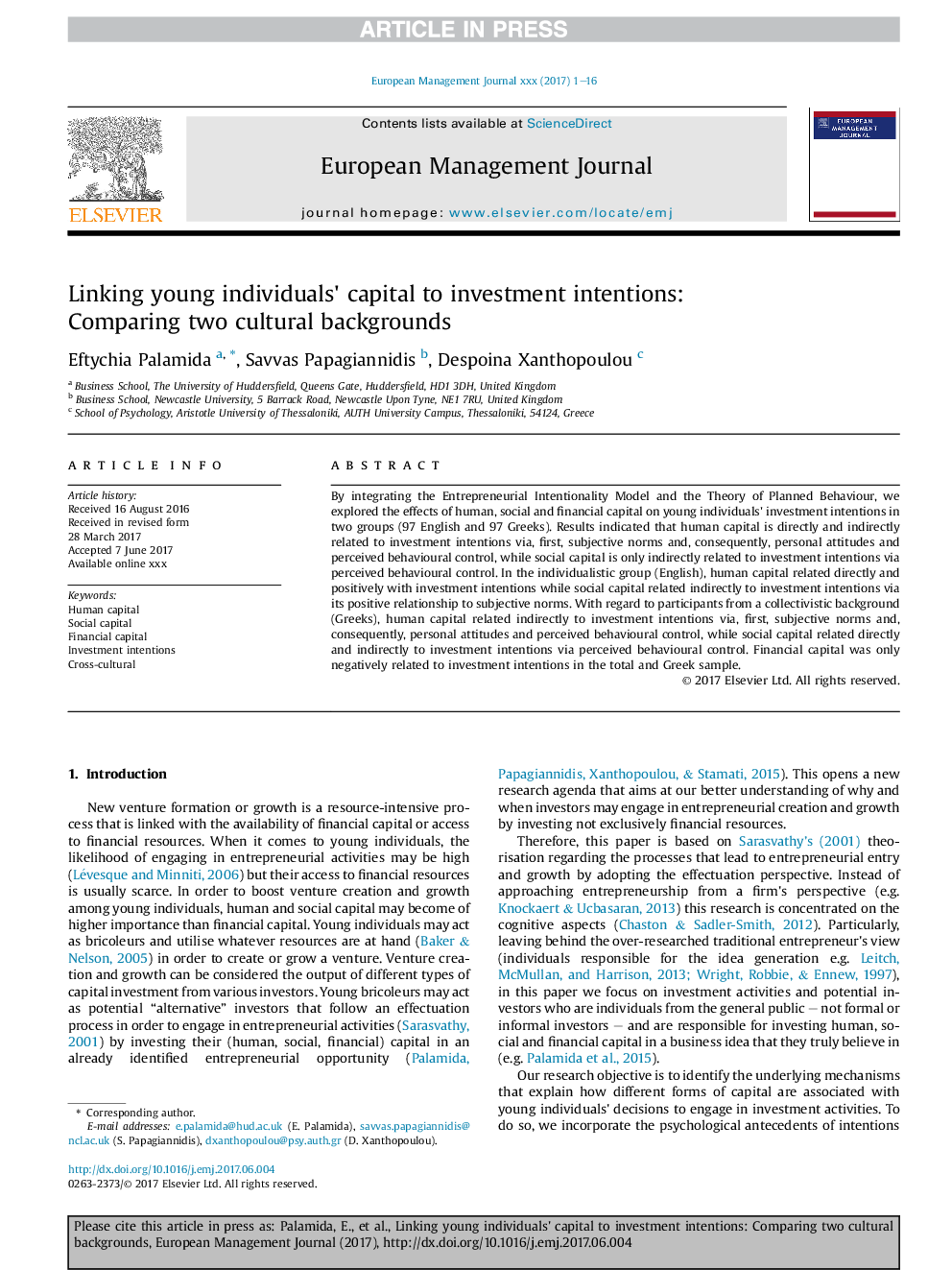| Article ID | Journal | Published Year | Pages | File Type |
|---|---|---|---|---|
| 7423539 | European Management Journal | 2018 | 16 Pages |
Abstract
By integrating the Entrepreneurial Intentionality Model and the Theory of Planned Behaviour, we explored the effects of human, social and financial capital on young individuals' investment intentions in two groups (97 English and 97 Greeks). Results indicated that human capital is directly and indirectly related to investment intentions via, first, subjective norms and, consequently, personal attitudes and perceived behavioural control, while social capital is only indirectly related to investment intentions via perceived behavioural control. In the individualistic group (English), human capital related directly and positively with investment intentions while social capital related indirectly to investment intentions via its positive relationship to subjective norms. With regard to participants from a collectivistic background (Greeks), human capital related indirectly to investment intentions via, first, subjective norms and, consequently, personal attitudes and perceived behavioural control, while social capital related directly and indirectly to investment intentions via perceived behavioural control. Financial capital was only negatively related to investment intentions in the total and Greek sample.
Related Topics
Social Sciences and Humanities
Business, Management and Accounting
Business and International Management
Authors
Eftychia Palamida, Savvas Papagiannidis, Despoina Xanthopoulou,
